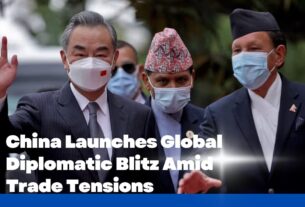Nigeria, Africa’s most populous country, has long adhered to an informal convention in its political appointments: a careful balancing of the nation’s diverse ethnic and religious groups. This tradition aims to foster national cohesion and prevent dominance by any single group. However, recent actions by President Bola Tinubu have raised concerns that this delicate balance is being disrupted.
Critics argue that President Tinubu, a southern Muslim of the Yoruba ethnic group, is favoring individuals from his own ethnic background in key positions. Notably, his selection of a northern Muslim as his running mate in the last election broke with the longstanding precedent of pairing a Muslim with a Christian candidate, reflecting Nigeria’s roughly even Muslim-Christian population. Since assuming office in May 2023, Tinubu’s appointments to critical roles have intensified these concerns.
Nigeria’s political landscape is shaped by over 250 ethnic groups, with the Hausa-Fulani, Igbo, and Yoruba being the three largest. The nation’s constitution mandates regional representation in cabinet positions, but the broader distribution of influential roles has traditionally followed a convention aimed at fostering national cohesion. The concentration of power in the hands of one ethnic group has historically been a source of tension and division.
The growing criticism of President Tinubu’s appointments underscores the importance of maintaining Nigeria’s ethnic balance in governance. As the country navigates its complex social fabric, ensuring equitable representation remains crucial for national unity and stability.




